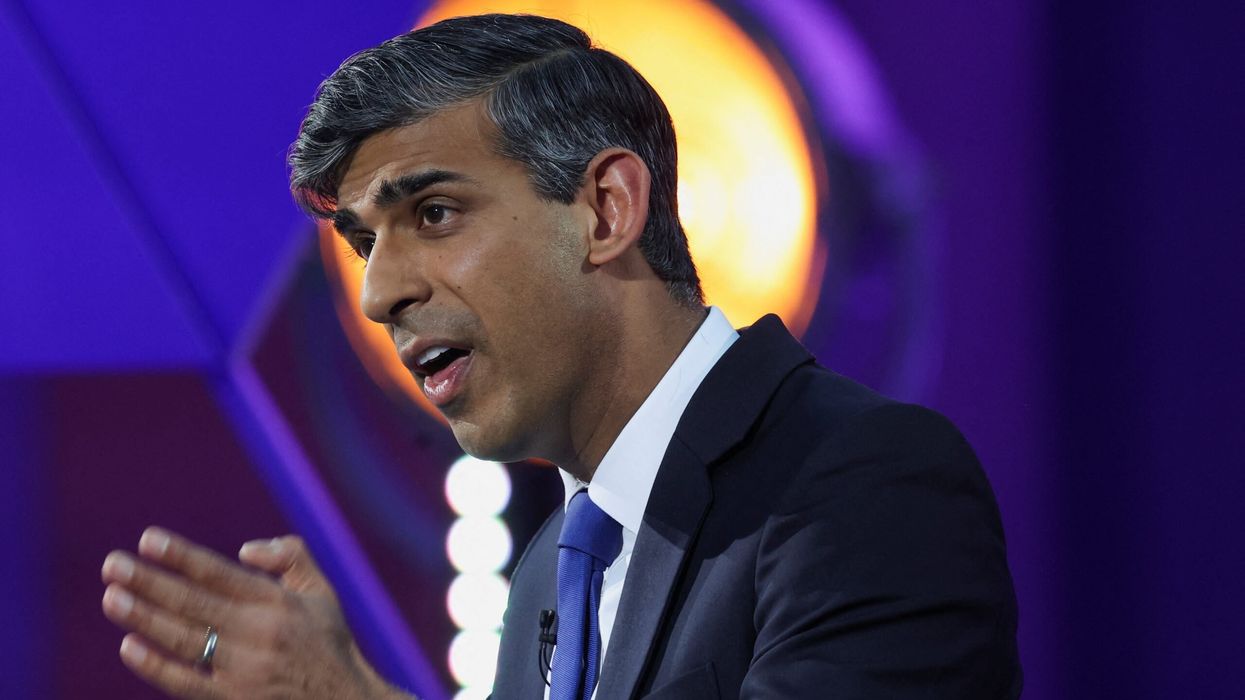Rishi Sunak expressed his hurt and anger after a supporter of Nigel Farage's Reform UK party was recorded making a racist slur about him.
Sunak, Britain’s first ethnic-minority prime minister, was responding to comments aired by Channel 4 News.
A man identified as Andrew Parker was recorded calling Sunak a "f****** P***," a racial slur used against people of South Asian descent.
Sunak was born in Southampton in 1980 to Hindu parents of Punjabi-Indian descent.
"My two daughters have to see and hear Reform people who campaign for Nigel Farage calling me an effing P***. It hurts and it makes me angry, and I think he has some questions to answer," Sunak told broadcasters on Friday. "I don't repeat those words lightly, I do so deliberately because this is too important not to call out clearly for what it is."
Parker provided a statement to Channel 4 News after learning they would broadcast the video, saying no one at Reform was aware of his personal views on immigration.
"I would therefore like to apologise profusely to Nigel Farage and the Reform Party if my personal views have reflected badly on them and brought them into disrepute as this was not my intention," he said. "I offered to help the Reform Party on their canvassing as I believe that they are the only party that offer the UK voter a practical solution to the illegal immigration problem that we have in the UK."
In the video, Parker says: "I've always been a Tory (Conservative) voter but what annoys me is that f****** P*** we've got in. What good is he? You tell me, you know. He's just wet. F****** useless."
Farage said in a statement late on Thursday, when the comments were first broadcast, that he was dismayed by the language. On Friday, he said on Twitter: "We now learn that he is an actor by profession. This whole episode does not add up."
Channel 4 News said in a statement that they covertly filmed Parker and did not know him before meeting him as a Reform volunteer.
(With inputs from agencies)





